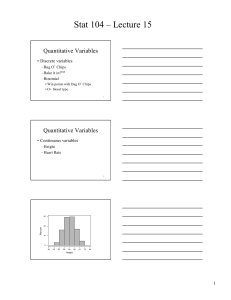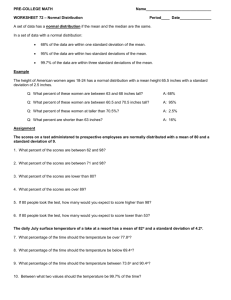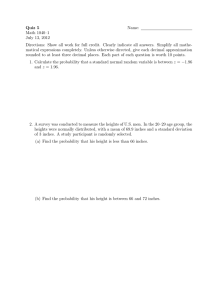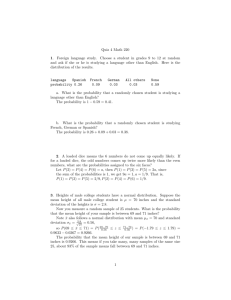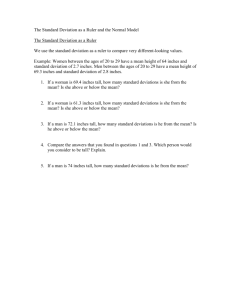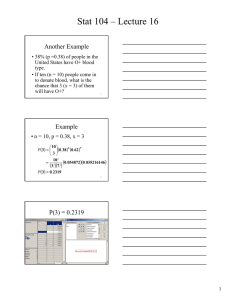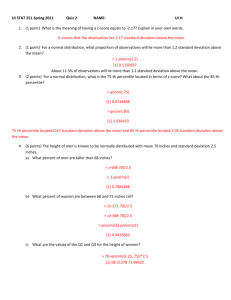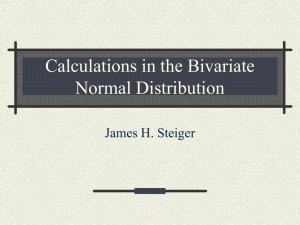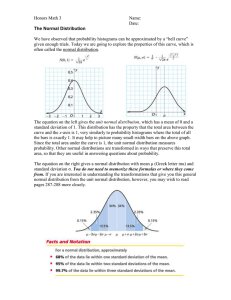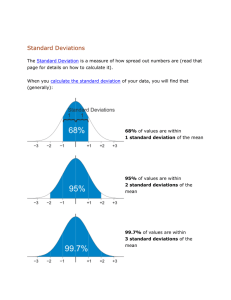Section 8.6: Normal Random Variables
advertisement
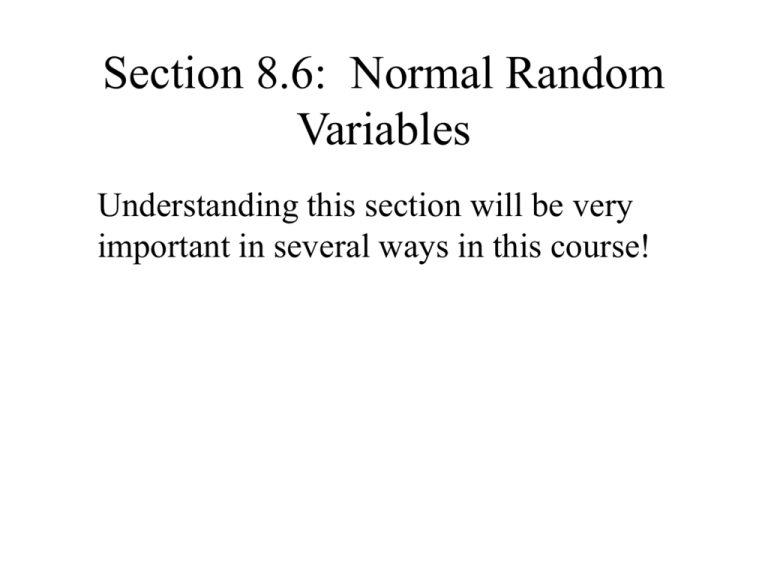
Section 8.6: Normal Random Variables Understanding this section will be very important in several ways in this course! Standardization • If the distribution of X has mean m and standard deviation s, then letting Z=(X-m)/s is called standardization. • After standardization, the distribution of Z has mean 0 and standard deviation 1. • The standardized version of X is sometimes called a z-score. Why Standardize? • If X~N(m,s), then Z~N(0,1). • Everything we need to know about the N(0,1) distribution is contained in Table A.1 on pages 538-539! Using Table A.1 to find proportions • Example: If the heights of adult females are normally distributed with mean 65.5 inches and standard deviation 2.5 inches, – What proportion of women are more than 70 inches tall? – What proportion are between 66 and 68 inches tall? Using Table A.1 to find percentiles • Example: If the heights of adult females are normally distributed with mean 65.5 inches and standard deviation 2.5 inches, – What is the 75th percentile of women’s heights? – What is the 5th percentile? Using Table A.1 to find a confidence interval multiplier • For a normal distribution, 95% of the distribution is found within ______ standard deviations on either side of the mean. • 99% of the distribution is found within _____ standard deviations on either side of the mean. • 90% is found within _____ standard deviations.

